13 Best CMS / Blog Platforms
A curated list of free, open source and paid cms / blog platforms, ranked based on relevancy and feature completeness as a cms / blog platform
Wordpress #1
A powerful, open-source CMS that lets users create customizable websites, from blogs to e-commerce stores, with extensive theme and plugin options
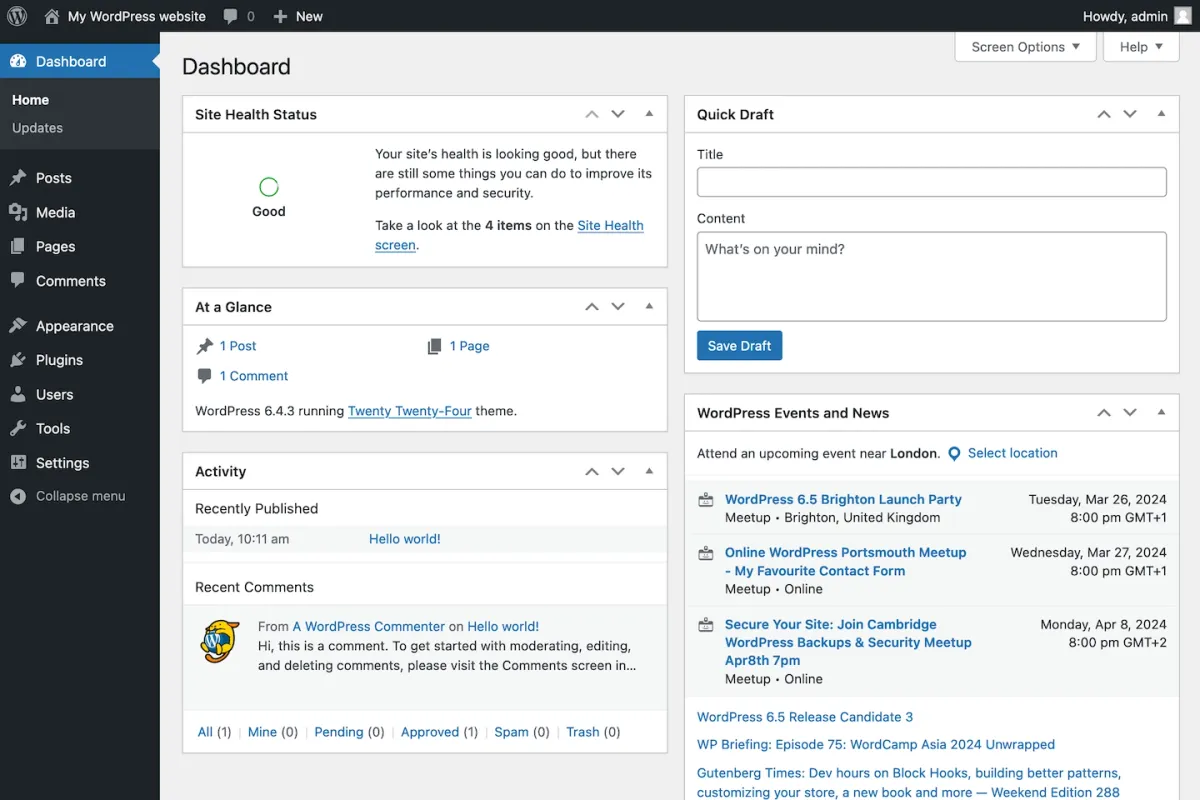
WordPress is a versatile content management system (CMS) that allows users to build and manage websites without needing extensive coding knowledge. With thousands of themes and plugins, it offers endless customization possibilities for creating anything from simple blogs to advanced online stores, all while supporting responsive design and SEO features.
- Blogging: Ideal for creating and managing personal or professional blogs.
- Business Websites: Perfect for small and large businesses needing a flexible website.
- E-commerce Sites: Build online stores with ease using plugins like WooCommerce.
Ghost #2
A streamlined, open-source CMS tailored for publishing, enabling users to create, manage, and monetize content with ease
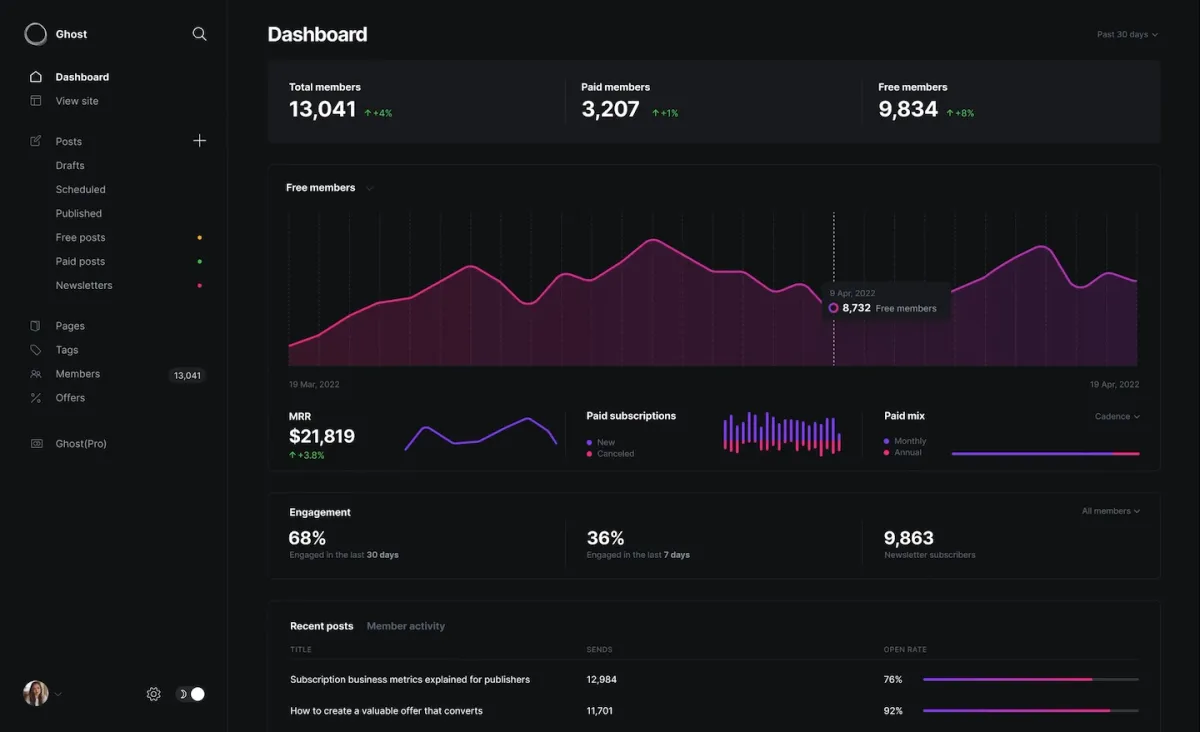
Ghost is a minimalist, open-source CMS designed specifically for publishing and blogging. Its clean interface and Markdown editor make content creation intuitive, while built-in SEO, AMP, and structured data support help improve search engine visibility. Ghost is especially popular among creators and businesses looking for a straightforward platform focused on content without unnecessary complexity.
- Professional Blogging: Ideal for writers and bloggers seeking a clean, distraction-free interface.
- Content Monetization: Great for creators who want to monetize with memberships and subscriptions.
- Newsletters and Email Marketing: Efficient for managing newsletters and sending content to subscribers.
OctoberCMS #3
A robust and adaptable CMS based on Laravel, designed for developers who want flexibility and control over their web projects without sacrificing simplicity and ease of use
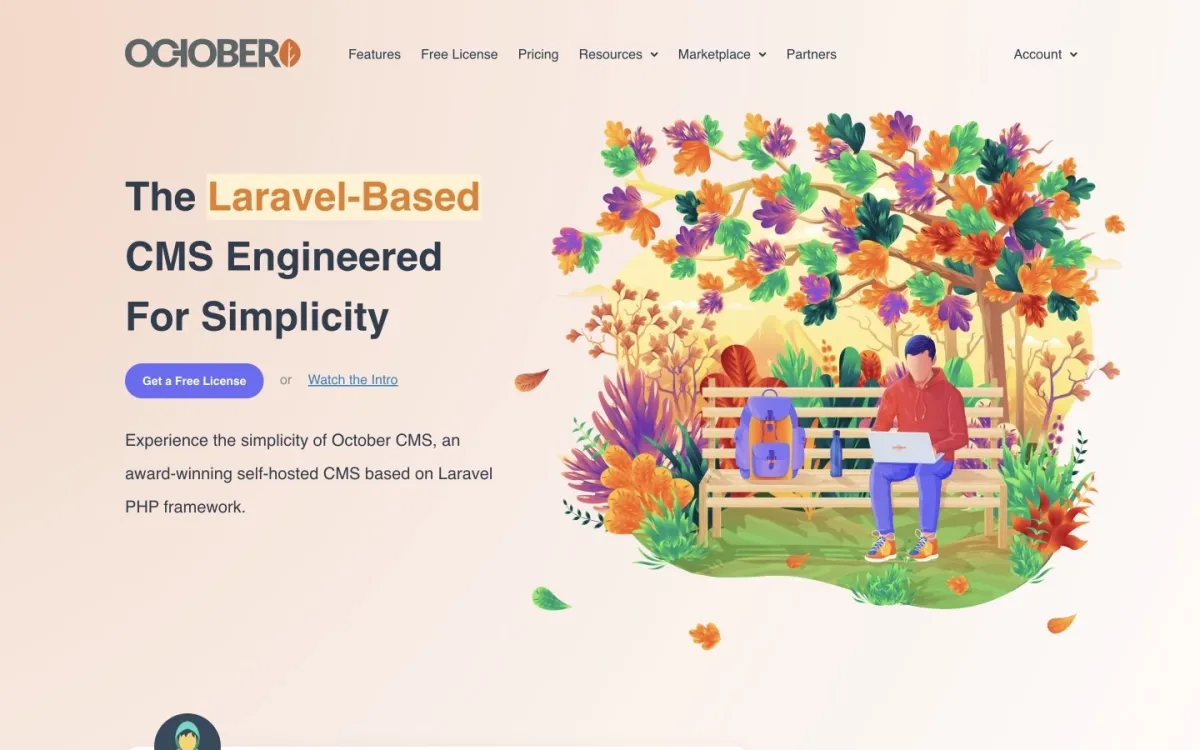
October CMS combines the power of Laravel with a user-friendly interface, offering a modular, self-hosted platform for building diverse web applications. Tailored for developers, it includes customizable plugins, themes, and advanced data management features, all designed for straightforward deployment and scalability. With October, developers can build websites from simple content-driven sites to complex, dynamic applications.
- Content-Driven Websites: Ideal for websites focused on rich content and frequent updates.
- Corporate Websites: Effective for company websites requiring scalability and customization.
- Ecommerce and Small Businesses: Supports small to medium eCommerce platforms with secure, customizable solutions.
Wagtail #4
A high-performance, open-source CMS built on Django, ideal for content-driven sites, offering both editors and developers a customizable, intuitive experience
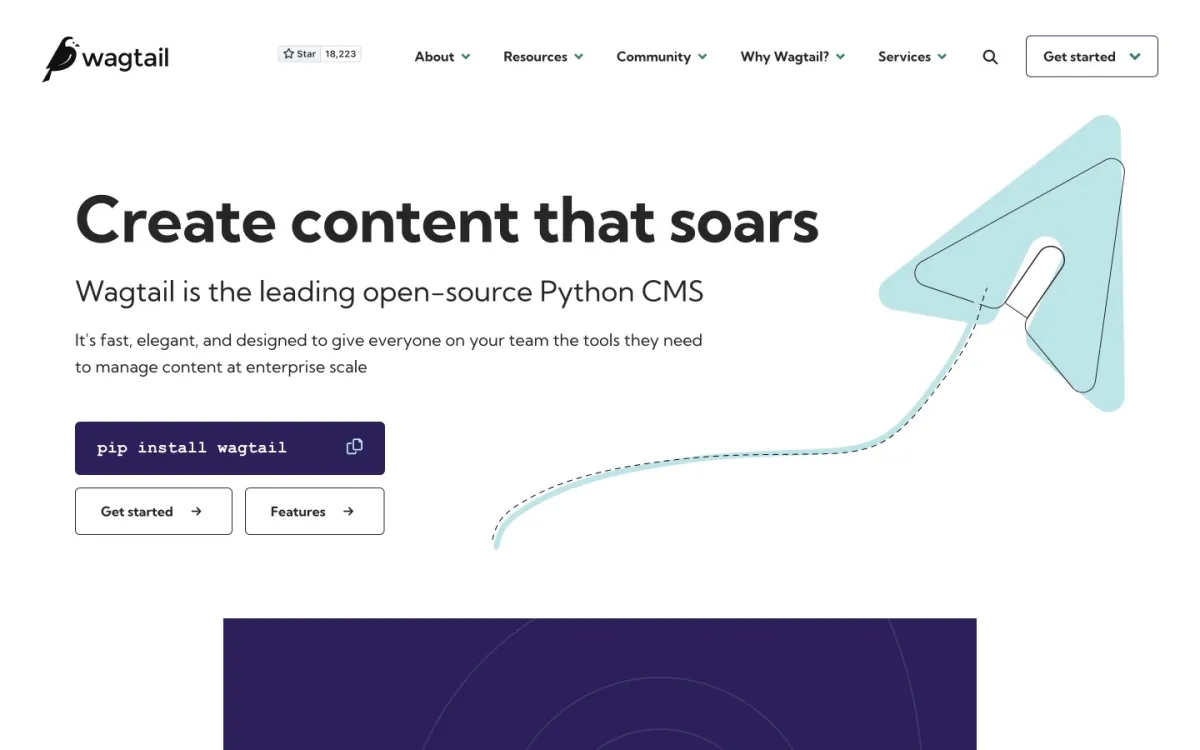
Wagtail provides a streamlined interface with a powerful, flexible StreamField editor, allowing teams to manage rich, complex content while enabling developers to leverage Python’s extensibility. It is well-suited for projects of any scale, supporting both traditional and headless CMS setups to meet diverse needs.
- Enterprise Websites: Scales efficiently for large, content-heavy sites.
- Corporate Platforms: Flexible management for internal and external sites.
- Educational Institutions: Ideal for universities and learning platforms.
Drupal #5
A versatile content management system enabling organizations to create, manage, and deliver content for diverse web applications with scalability and security
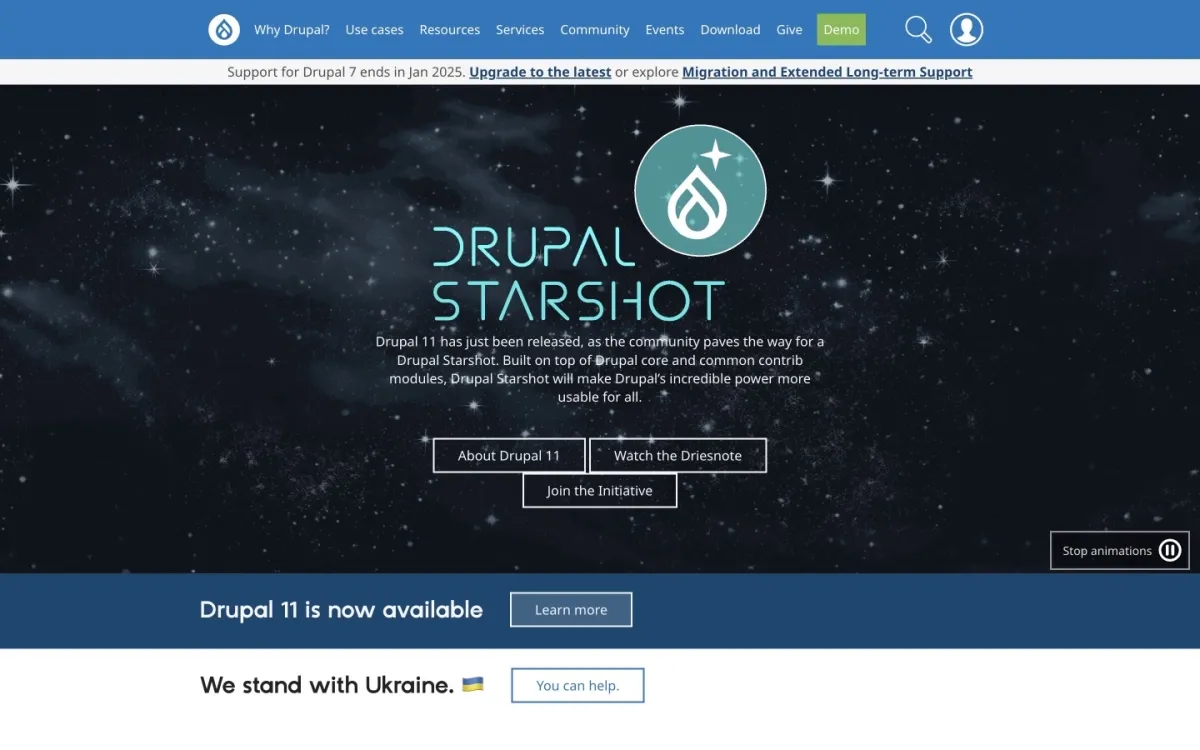
Drupal is an open-source CMS that powers enterprise-grade websites with customizable content structures, extensive user permissions, and advanced APIs for seamless integrations. Its modular architecture supports tailored solutions, from content-rich sites to complex applications, offering flexibility and control.
- Government Websites: Secure, scalable content management.
- Corporate Websites: Centralized content for large organizations.
- Community Platforms: Robust user management for forums and networks.
Webflow #6
A powerful platform for visually designing, building, and launching professional websites with complete control over HTML, CSS, and JavaScript without coding.
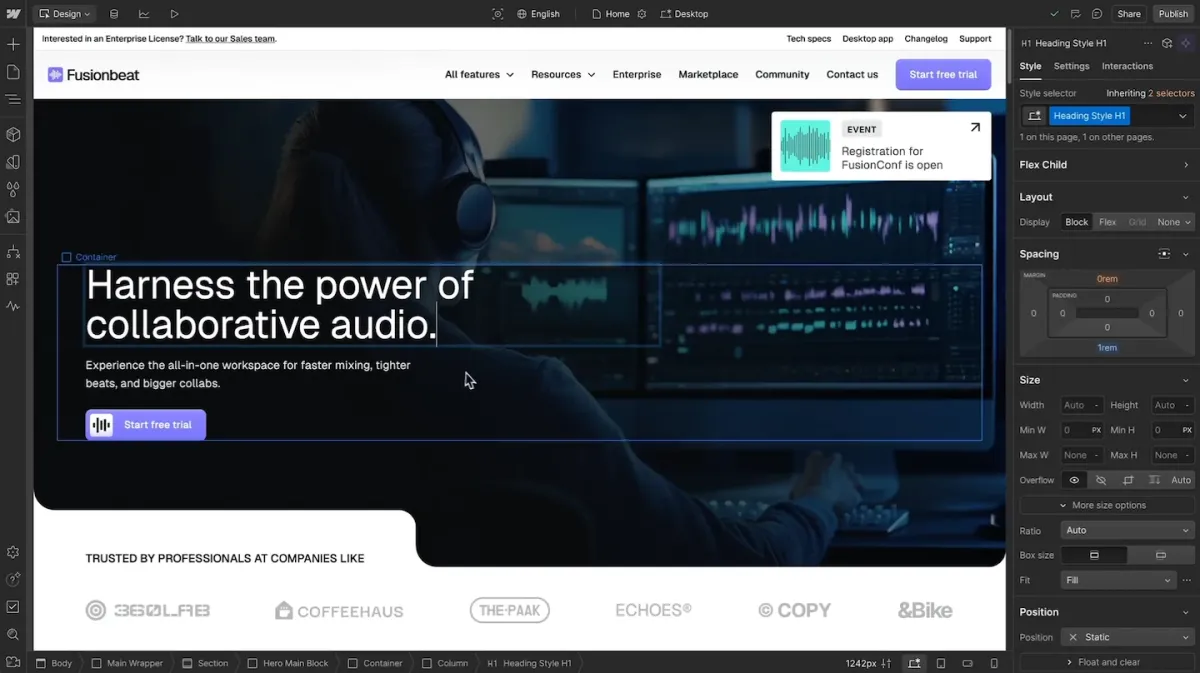
Webflow allows users to create production-ready websites through its intuitive, visual development interface, giving designers full creative control over every element. With Webflow, users can design complex layouts and interactions while ensuring pixel-perfect precision. The platform also features a unique approach by translating visual design choices directly into clean code, making it a developer-friendly solution for launching fast, scalable websites.
- Custom Website Design: Build professional-grade, custom websites with visual control over code.
- Dynamic Content Management: Perfect for content-driven sites that need to manage and update content efficiently using the CMS.
- E-Commerce Stores: Create fully customized online stores with Webflow’s integrated eCommerce tools.
Contentful #7
A powerful headless CMS for businesses to create, manage, and distribute content efficiently, enabling personalized experiences and rapid development

Contentful is a headless content management system that provides a central hub for storing and managing content, enabling teams to deliver consistent, on-brand experiences across various platforms. With its API-first approach, Contentful allows developers to build tailored applications that meet specific business needs while ensuring scalability and efficiency.
- Content/Media Website: Manage and distribute content across various platforms.
- Corporate Websites: Centralized content management for large organizations.
- E-commerce or SME Websites: Deliver product information and marketing content efficiently.
Beehiiv #8
Elevate your content strategy with tools that simplify publishing, growth, and monetization
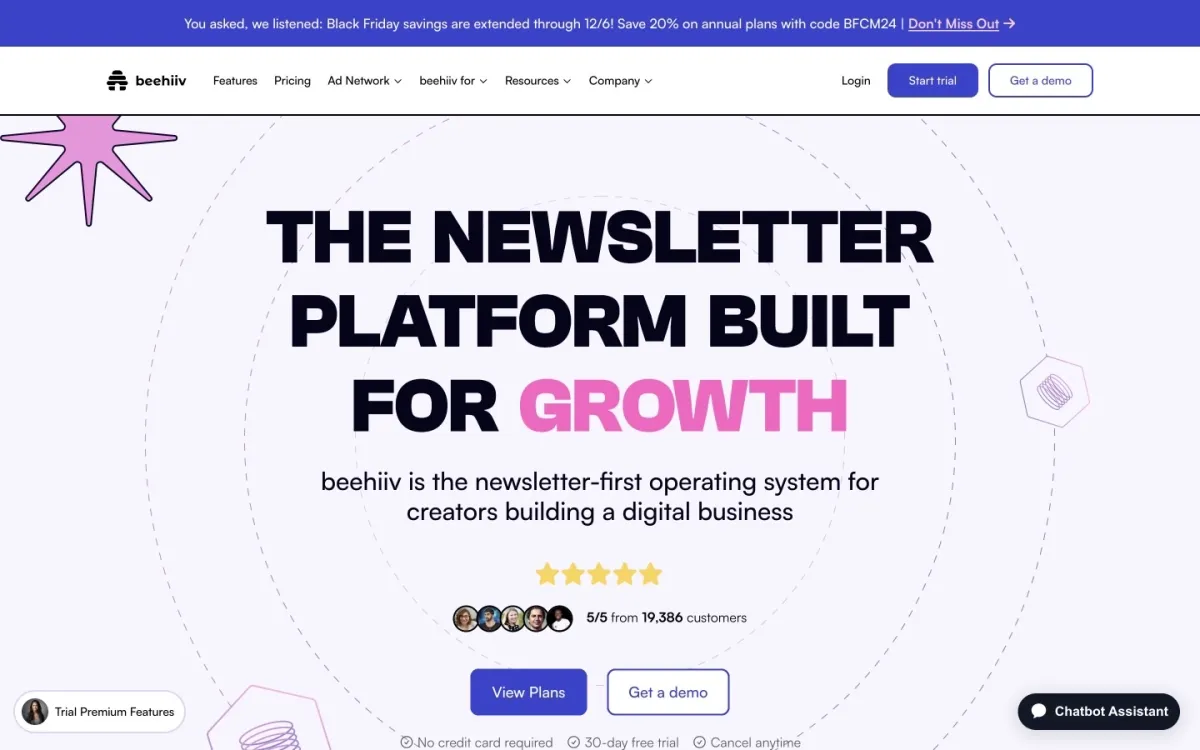
Beehiiv is an innovative newsletter platform built specifically for creators, offering a comprehensive suite of tools to streamline the publishing process. With features that allow users to design, publish, and grow their newsletters without any coding knowledge, Beehiiv empowers creators to launch their media brands quickly and effectively. The platform is backed by the creators of Morning Brew and has already supported numerous successful newsletters in scaling their audiences.
- Newsletter Creation: Easily launch and manage engaging email newsletters.
- Audience Growth: Utilize growth tools to attract and retain subscribers.
- Revenue Generation: Monetize content through subscriptions and advertising.
Substack #9
Empower your voice with tools designed for easy newsletter publishing and audience engagement
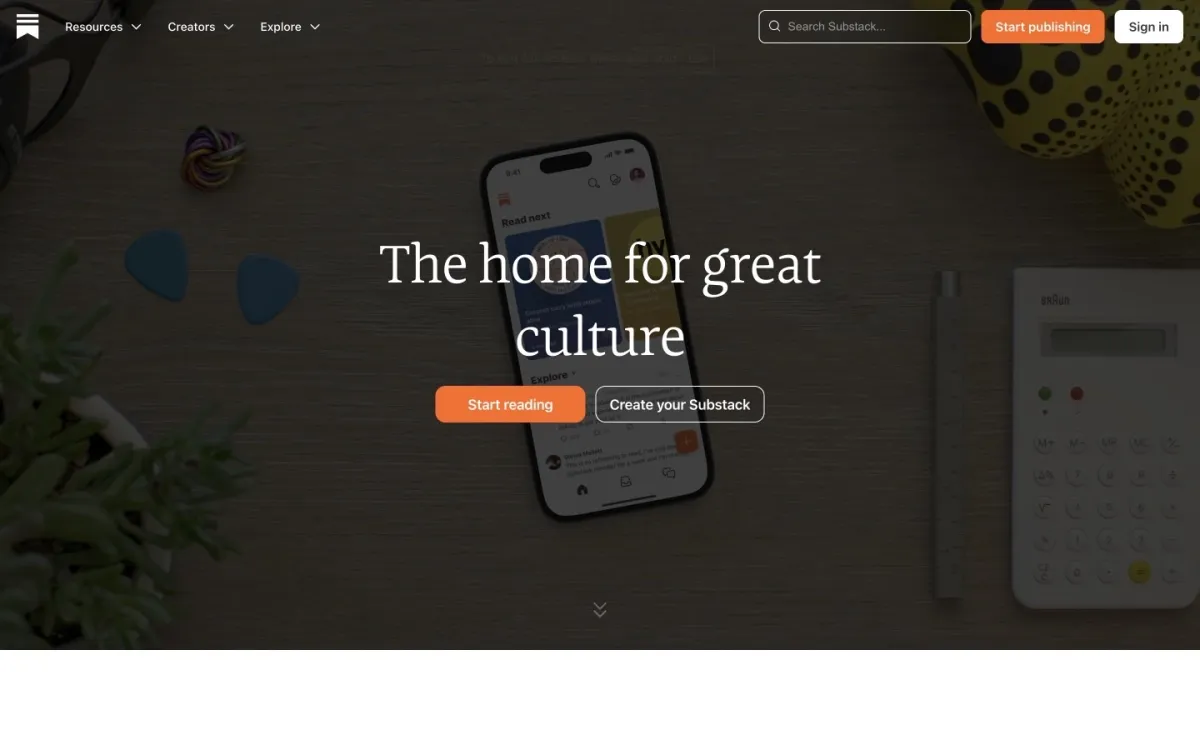
Substack is a dedicated platform that enables writers, journalists, and creators to publish newsletters and connect directly with their audience. With an emphasis on simplicity, Substack allows users to create, distribute, and monetize their content effortlessly. Writers can set up paid subscriptions, allowing them to earn revenue while building a loyal readership. The platform supports both free and premium content, giving creators the flexibility to engage their audience in various ways.
- Independent Journalism: Publish investigative pieces or commentary directly to readers.
- Creative Writing: Share stories or essays while building a dedicated following.
- Niche Content Distribution: Cater to specific interests or communities with targeted newsletters.
Builder.io #10
Transform your workflow with AI-driven tools that streamline design, development, and content delivery across all digital channels
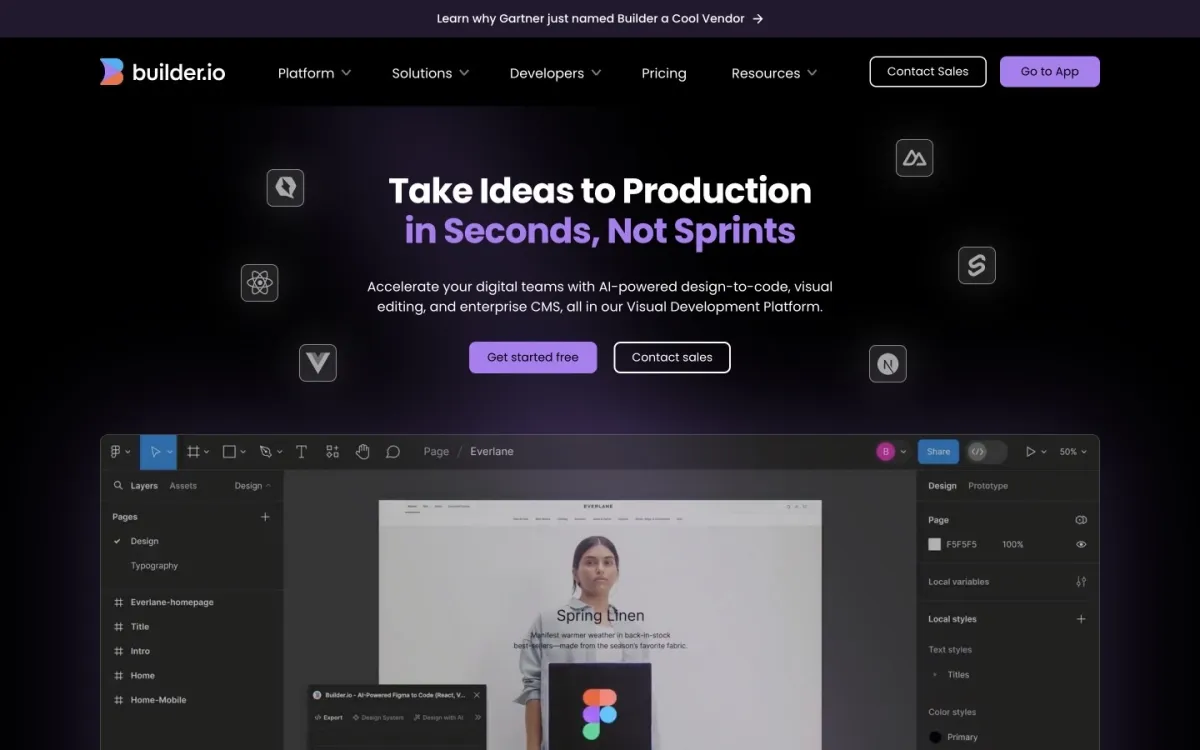
Builder.io is a visual development platform designed to empower teams to create and manage digital experiences quickly and efficiently. By combining design-to-code capabilities with a powerful headless CMS, it allows users to build responsive websites and applications without extensive coding knowledge. The platform's intuitive visual editor enables real-time collaboration, allowing designers and developers to work together seamlessly, accelerating the production process significantly.
- E-commerce websites: Build engaging online stores with personalized shopping experiences.
- Marketing landing pages: Create high-converting landing pages quickly for campaigns.
- Mobile app development: Design responsive mobile applications that enhance user engagement.
Storyblok #11
Empower your teams with a flexible platform that seamlessly integrates development and marketing, enhancing collaboration and content delivery
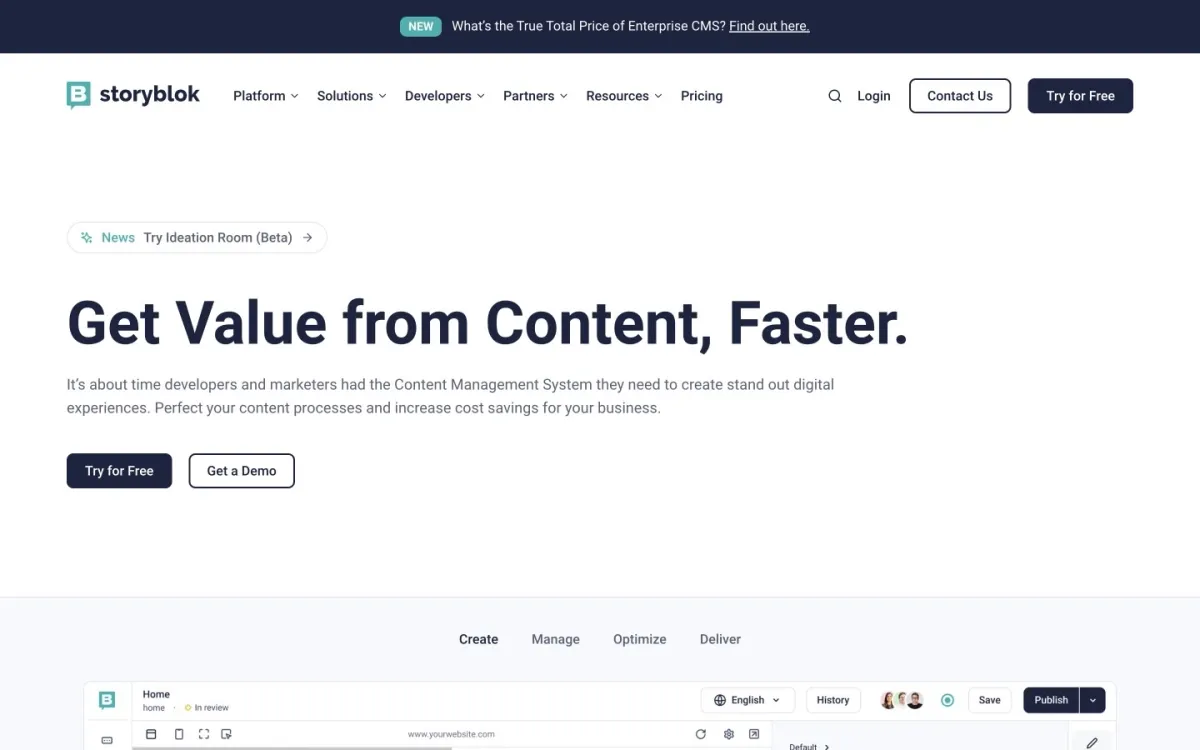
Storyblok is an enterprise-grade headless content management system designed to streamline the entire content lifecycle, from creation to delivery. Its cloud-native architecture provides the scalability and performance required by large organizations, enabling teams to publish content quickly and efficiently. With an intuitive visual editor, Storyblok allows non-technical users to manage content effortlessly while providing developers with the flexibility to integrate their preferred technologies.
- Enterprise websites: Create scalable, dynamic websites that adapt to business needs.
- E-commerce platforms: Manage product information and marketing content efficiently.
- Marketing campaigns: Streamline the localization of marketing materials for global reach.
Squarespace #12
A user-friendly platform for building websites, blogs, and e-commerce stores with customizable templates and integrated tools

Squarespace is an all-in-one website builder that enables users to create professional websites, blogs, and online stores without needing coding skills. It offers a wide range of beautiful, customizable templates and a drag-and-drop editor to quickly design responsive websites. With integrated e-commerce tools, users can set up online stores with product listings, payment processing, and inventory management, making it ideal for small businesses and personal brands.
- Small Business Websites: Ideal for creating websites and stores for small businesses.
- Portfolios and Personal Sites: Great for professionals looking to showcase portfolios and personal projects.
- E-commerce Stores: Perfect for setting up and managing small to medium online stores.
Wix #13
Easily design and launch your website with intuitive tools and customizable templates tailored to your needs

Wix is a powerful website creation platform that empowers users to build professional websites without any coding knowledge. With over 900 designer-made templates and an AI-driven website builder, users can quickly create a fully functional site by simply describing their business preferences. The drag-and-drop editor allows for seamless customization, enabling users to arrange text, images, and other elements effortlessly.
- Small Business Websites: Establish an online presence to attract customers.
- Online Stores: Create eCommerce sites to sell products directly to consumers.
- Portfolio Sites: Showcase work and projects to potential clients or employers.
 Made by
Made by